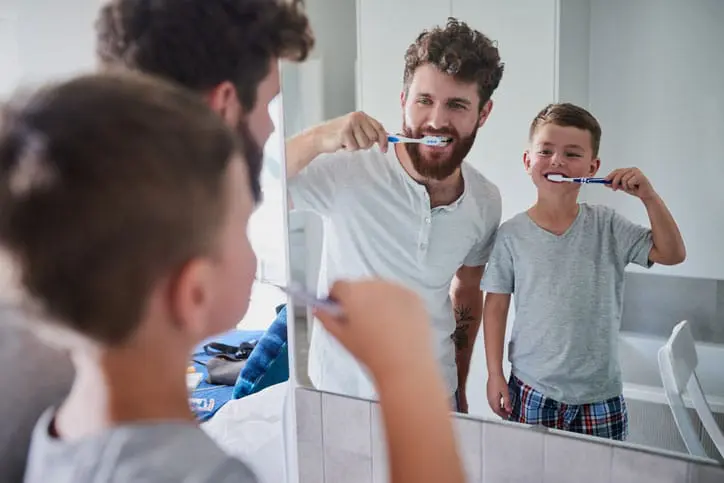Brushing your teeth is a good thing. But just like any other “good thing,” you can have too much of it. Overbrushing can wear down your enamel and irritate your gums, which does more harm than good. Read on to learn the right way to brush your teeth and protect your smile.
Dangers of Overbrushing Your Teeth
Your teeth cannot regenerate themselves as they wear down. Brushing them too much puts you at risk of increased sensitivity, gum recession, cavities, exposed roots, and more.
Overbrushing erodes your enamel, which could make your teeth look darker and more yellow. That’s right – brushing too much won’t make your teeth whiter! The dentin underneath your enamel is dark, so the thinner your enamel is, the more that will shine through. You need a proper oral hygiene balance to maintain a white smile.
How Many Times Per Day Should I Brush My Teeth?
The golden rule for oral hygiene is to brush your teeth twice per day. You can brush up to three times per day, but we do not recommend any more than that.
Most people who overbrush are trying to prevent bad breath. If that’s the case for you, consider rinsing your mouth with mouthwash or chewing sugar-free gum for a refresher. Increasing your water intake could also prevent bad breath because the water washes away bacteria. You can achieve a similar effect without completely brushing your teeth every few hours.
Signs You May Be Brushing Your Teeth Too Much or Too Hard
The obvious sign that you’re brushing too often is if you’re brushing more than three times per day. However, you may be brushing too hard or too often for your unique needs, even if you only brush twice per day. Here are some indicators to keep in mind:
- Your gums are receding, or they’ve become sensitive to brushing and flossing. Bleeding gums are usually a sign that you are not brushing or flossing enough, but receding gums indicate that you’re irritating them too much.
- Your teeth look darker near your gum line. This is another indicator that your gums are receding. The parts of your tooth underneath your gums do not have enamel like the exposed parts, so you’re likely seeing the underlayers of your teeth.
- Your teeth have become increasingly sensitive to hot and cold temperatures. Tooth sensitivity could indicate other issues, but if you brush more than three times per day, overbrushing may be the culprit.
- You brush your teeth every few hours. Brushing once in the morning and once at night is usually sufficient for keeping decay at bay. You can brush one additional time to eliminate bad breath at lunch, but anything more than that is overkill.
- Your toothbrush looks like it’s been through a carwash. You should get a new toothbrush once every six months. If your toothbrush looks heavily worn after a month of use, you’re probably brushing too hard or too often.
If you’re overbrushing your teeth, talk to your dentist about the best practices for your unique needs. They can tell if you’re brushing too frequently, too hard, or incorrectly altogether.











